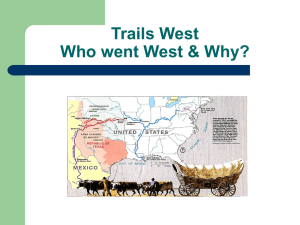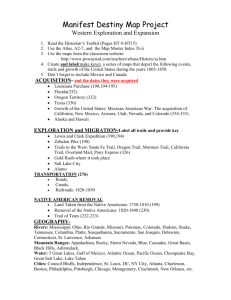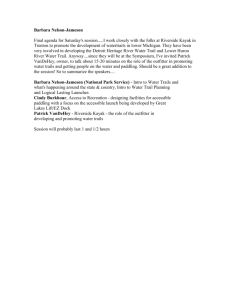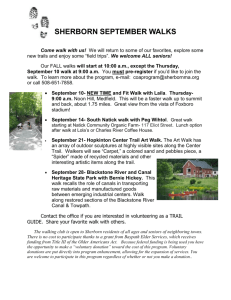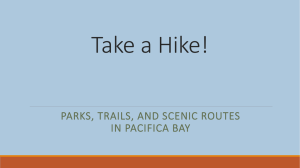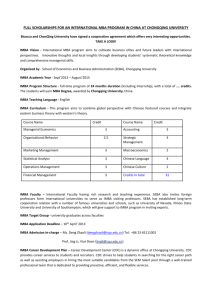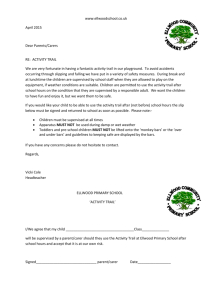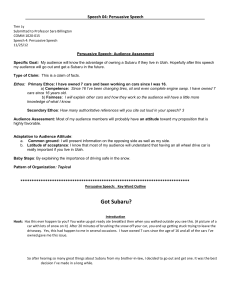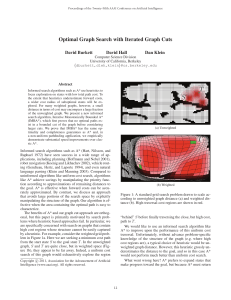Rules of the Trail
advertisement
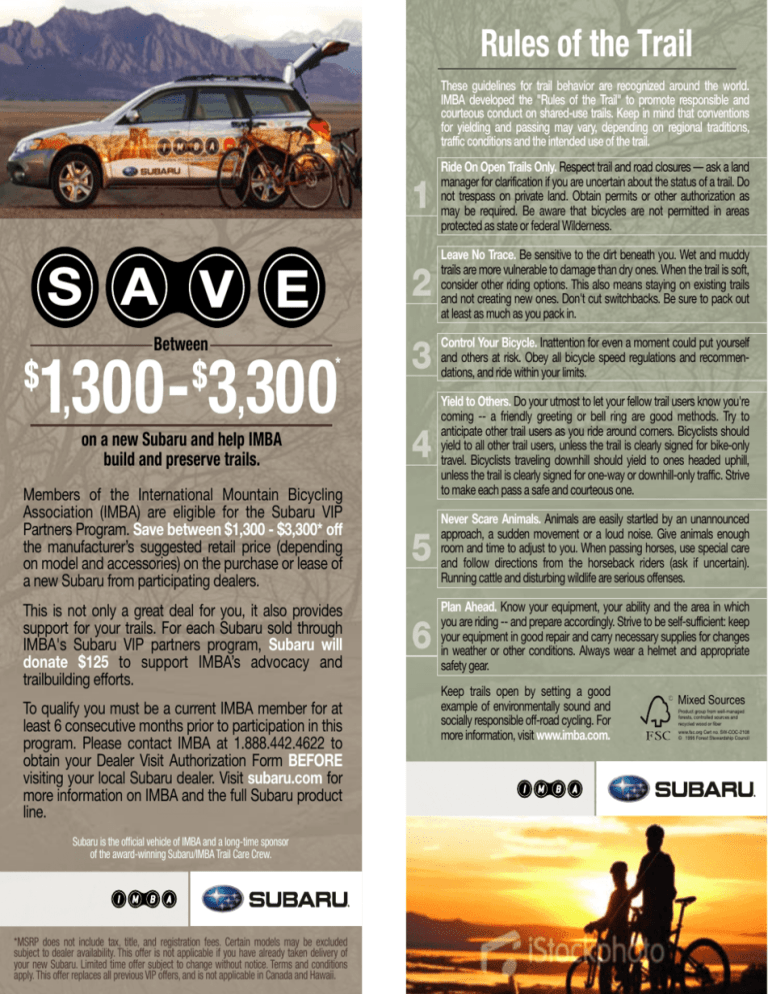
Rules of the Trail These guidelines for trail behavior are recognized around the world. IMBA developed the "Rules of the Trail" to promote responsible and courteous conduct on shared-use trails. Keep in mind that conventions for yielding and passing may vary, depending on regional traditions, traffic conditions and the intended use of the trail. S A V E Between 1,300 - $3,300 $ * on a new Subaru and help IMBA build and preserve trails. Members of the International Mountain Bicycling Association (IMBA) are eligible for the Subaru VIP Partners Program. Save between $1,300 - $3,300* off the manufacturer’s suggested retail price (depending on model and accessories) on the purchase or lease of a new Subaru from participating dealers. This is not only a great deal for you, it also provides support for your trails. For each Subaru sold through IMBA's Subaru VIP partners program, Subaru will donate $125 to support IMBA’s advocacy and trailbuilding efforts. To qualify you must be a current IMBA member for at least 6 consecutive months prior to participation in this program. Please contact IMBA at 1.888.442.4622 to obtain your Dealer Visit Authorization Form BEFORE visiting your local Subaru dealer. Visit subaru.com for more information on IMBA and the full Subaru product line. Subaru is the official vehicle of IMBA and a long-time sponsor of the award-winning Subaru/IMBA Trail Care Crew. *MSRP does not include tax, title, and registration fees. Certain models may be excluded subject to dealer availability. This offer is not applicable if you have already taken delivery of your new Subaru. Limited time offer subject to change without notice. Terms and conditions apply. This offer replaces all previous VIP offers, and is not applicable in Canada and Hawaii. 1 Ride On Open Trails Only. Respect trail and road closures — ask a land manager for clarification if you are uncertain about the status of a trail. Do not trespass on private land. Obtain permits or other authorization as may be required. Be aware that bicycles are not permitted in areas protected as state or federal Wilderness. 2 Leave No Trace. Be sensitive to the dirt beneath you. Wet and muddy trails are more vulnerable to damage than dry ones. When the trail is soft, consider other riding options. This also means staying on existing trails and not creating new ones. Don't cut switchbacks. Be sure to pack out at least as much as you pack in. 3 Control Your Bicycle. Inattention for even a moment could put yourself and others at risk. Obey all bicycle speed regulations and recommendations, and ride within your limits. 4 Yield to Others. Do your utmost to let your fellow trail users know you're coming -- a friendly greeting or bell ring are good methods. Try to anticipate other trail users as you ride around corners. Bicyclists should yield to all other trail users, unless the trail is clearly signed for bike-only travel. Bicyclists traveling downhill should yield to ones headed uphill, unless the trail is clearly signed for one-way or downhill-only traffic. Strive to make each pass a safe and courteous one. 5 Never Scare Animals. Animals are easily startled by an unannounced approach, a sudden movement or a loud noise. Give animals enough room and time to adjust to you. When passing horses, use special care and follow directions from the horseback riders (ask if uncertain). Running cattle and disturbing wildlife are serious offenses. 6 Plan Ahead. Know your equipment, your ability and the area in which you are riding -- and prepare accordingly. Strive to be self-sufficient: keep your equipment in good repair and carry necessary supplies for changes in weather or other conditions. Always wear a helmet and appropriate safety gear. Keep trails open by setting a good example of environmentally sound and socially responsible off-road cycling. For more information, visit www.imba.com. Mixed Sources Product group from well-managed forests, controlled sources and recycled wood or fiber www.fsc.org Cert no. SW-COC-2108 © 1996 Forest Stewardship Council
